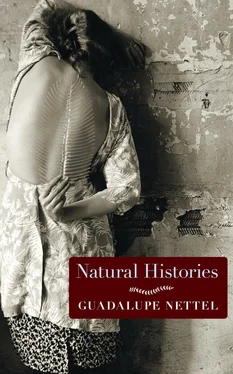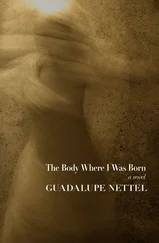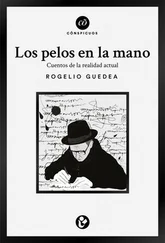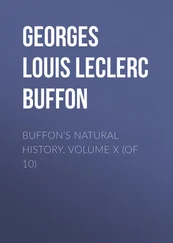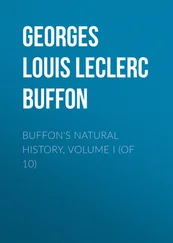Children, unlike adults, adapt to everything. So little by little, despite my mother’s disgust, I began to see that fungus as an everyday presence in my family life. It didn’t inspire the same aversion in me as it did my mother; just the opposite. I felt a protective sympathy for that iodine-painted toenail, which seemed vulnerable to me, similar to what I would have felt for a crippled pet that had trouble moving around. Time went on and my mother stopped making such a fuss over her affliction. For my part, I grew up and completely forgot about it and never again thought about fungi until I met Philippe Laval.
At that time I had just turned thirty-five. I was married to a patient and generous man who was ten years my senior and the director of the National School of Music, where I had completed the first part of my training as a violinist. We didn’t have children. We had tried for a while, but rather than agonizing over it, I felt fortunate to be able to focus on my career. I had completed my training at Juilliard and had garnered certain international prestige, enough to be invited to Europe and the United States to give concerts two or three times a year. I’d just recorded a CD in Denmark and was about to return to Copenhagen to teach a six-week course in a palace that every summer hosted the best students in the world.
I remember one Friday afternoon shortly before I was to leave I received a list with the biographical information of all the professors who would be at the residency that year. Laval’s was among them. It wasn’t the first time I read his name. He was a violinist and conductor of great renown, and on more than one occasion I’d heard from the mouths of friends words of praise about his live performances and how naturally he led the orchestra with his violin. From the list I learned that he was French and lived in Brussels, but often went to Vancouver where he taught at the School of Art. That weekend my husband, Mauricio, had gone out of town to attend a conference. I didn’t have plans that night so I searched the Internet to find which of his concerts was available to purchase online. After browsing for a while I ended up buying one of Beethoven, filmed live at Carnegie Hall years earlier. I remember the sense of wonderment I felt listening to it. The night was hot. I had the balcony doors open to let fresh air in and still, emotion restricted my breathing. Every violinist knows that arrangement — many by heart — but hearing his interpretation was an absolute revelation. As if I could at last understand it in all its depth. I felt a mix of reverence, envy, and gratitude. I listened to it three times at least and each time produced the same shiver. I then searched for pieces interpreted by other musicians invited to Copenhagen, and while the level was undoubtedly very high, not one of them surprised me as much as Laval did. Afterward I closed the file and though I thought of him more than once, I didn’t listen to the concert again in the following two weeks.
It wasn’t the first time I’d be separated from Mauricio for a few months, but being accustomed to it didn’t lessen the sadness of leaving him. As I did for every long trip, I asked him to come with me. The residency allowed it and despite his insisting otherwise I’m sure his work did as well. He could at least have spent two of the six weeks of the course there, or visited me once at the beginning and again at the end of my stay. Had he accepted, things between us would have gone down a different path. However, it didn’t make sense to him. He said that the time would go by quickly for us both and the best thing for me would be to concentrate on my work. It would be, according to him, an incredible opportunity, one I couldn’t miss or cut short, to plumb my depths and collaborate with other musicians. And it was that, just not in the way we’d imagined.
The castle where the summer school was held was located in Christiania, a neighborhood just outside the city. It was late July and at night the temperature was very pleasant. I wasted almost no time in making friends with Laval. At the beginning his schedule was more or less the same as mine: he was unquestionably nocturnal; I was still on North American time. After classes we’d work the same hours in soundproof rooms so as not to wake the others, and now and again we’d run into each other in the kitchen or at the tea stand. We were the first — and only — ones to make it to the early breakfast, when the cafeteria began serving. From friendly and excessively polite our conversations became increasingly personal. An intimacy quickly grew between us, and a sense of closeness different from what I felt toward the other teachers.
A summer school is a place beyond reality that allows us to surrender to that which we usually deny ourselves. You can take all kinds of liberties; to visit the heart of the host city, attend dinners and events, socialize with the locals or other residents, give in to laziness, to bulimia, to some addicting habit. Laval and I fell into the temptation of falling in love. A classic, it would seem, in such a place. During the six weeks of the program we passed through Copenhagen’s parks on buses and bikes, went to bars and museums, attended operas and several concerts. But mostly we were intent on getting to know each other as much as possible in that limited amount of time. When you know a relationship is fated to end on a given day it is easy to let fall the walls you put up to protect yourself. We are more benign, more indulgent with someone who will soon cease to be there than with those who take shape as long-term partners. No fault, no defect deters us, as we won’t have to stand it in the future. When a relationship has an expiration date as clear as ours had, there’s no wasting time on judging the other person. The only thing you focus on is enjoying their best qualities, fully, urgently, voraciously, as time is not on your side. At least that is what happened to Philippe and me during that residency. His infinite quirks when it came to work, to sleep, and to organizing his room amused me. His phobia of sickness and every type of contagion, his chronic insomnia, melted me and made me want to protect him. The same happened to him with my obsessions, my fears, my own insomnia, and my constant frustration with my music. Still, I should say that it was also a time of great creativity. If I had noticed in my CD recorded months earlier in Copenhagen a certain stiffness, a certain horological precision, then now my music had more flow and greater presence. Not the strict vigilance of someone who fears making a mistake, but rather the abandon and spontaneity of someone who thoroughly enjoys what she is doing. There is, luckily, some evidence of that favored moment in my career. In addition to the recordings required by our host institution, I did three radio programs that I hold as proof of my greatest personal achievements. Laval conducted two concerts at the Royal Danish Theatre, both awe-inspiring. The audience gave him a standing ovation that lasted several minutes and, after the event, the musicians professed it had been an honor to share the stage with him. Having followed closely his development since then, I can attest that the month and a half he spent in that city marked one of the best — if not the very best — moments in his entire career. Yes, he established himself later on, but it is enough to listen to the recordings from those weeks to realize that within them there is an extraordinary emotional transparency.
Like me, Laval was married. Waiting for him in a chalet outside of Brussels were his wife and daughters, three blond, round-faced girls whose treasured photographs he kept in his phone. We preferred not to speak too much about our respective relationships. Despite what one might think, in that state of exceptional bliss there was no space for guilt or fear of what would happen later, when we returned to our worlds. There was no time but the present. It was like living in a parallel dimension. Whoever has not been through something similar will think I am coming up with these failed metaphors to justify myself. Those who have will know exactly what I’m talking about.
Читать дальше
